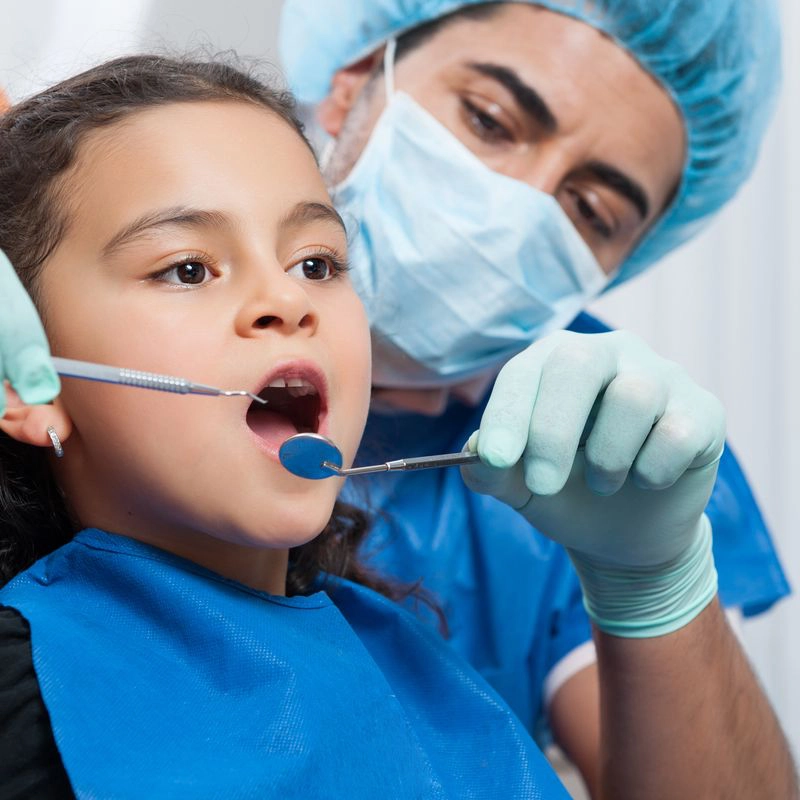Home/Wellness Zone/Sakra Blogs
18th Jan, 2021

Children having dental problems require treatment and sometimes it requires general anesthesia.
How Safe is Anesthesia for Children during dental procedures?
There are certain guidelines for dentists to follow when providing general anesthesia to children. There should be at least two people in the room who are trained to provide support measures in case of a medical emergency.
Types Anesthesia Used on Children
Nitrous oxide: It is a mild sedative and the least invasive. It is commonly called giggle gas or laughing gas.
Mild sedation: It is a combination of medicines that are commonly used on older children. The child would be calm and awake and may not even remember things after the procedure is completed.
Moderate sedation: Children are sleepier, but they are usually able to do what the dentist asks them to do. They breathe on their own.
General anesthesia: The child will be completely asleep without any pain. The anesthesiologist will monitor the child while the dental surgeon performs the procedure.
General Anesthesia
To keep your child comfortable during a dental procedure, the dental surgeon might use general anesthesia. The dentist may also use general anesthesia if your child needs extensive or complicated procedures that will take a long time to complete.
In general anesthesia, your child’s body goes to sleep and he/she will feel no pain during the procedure.
Home Preparation
There are certain rules for eating and drinking to be followed before the procedure if general anesthesia is required. The doctor will give you specific instructions about eating and drinking based on the child’s age.
The usual instructions for eating and drinking are as follows:
For infants under 12 months:
Up to 6 hours before the procedure, formula-fed babies may be given formula.
Up to 4 hours before the procedure, breastfed babies may nurse.
For all children:
Do not give any solid food or non-clear liquids such as milk, formula, juices with pulp, coffee, and chewing gum or candy, the night before the procedure.
Up to 2 hours before the procedure give only clear liquids such as water and juices without pulp.
Things to Remember
Even with the parent present, operating room can be a scary place for the child. Don’t feel bad if your child gets upset.
Your child’s safety is our primary concern. So if you are asked to leave the room for any reason, then please support the doctors.
If you feel uncomfortable during induction then please wait in the waiting room.
Following General Anesthesia
After the procedure is completed, your child will be taken to the recovery room where his or her vitals are checked carefully. The effects of general anaesthesia last for many hours.
Your child’s mouth and throat may remain numb for 30 to 45 minutes after the procedure. The throat may remain slightly sore for 1 to 2 days after the procedure. The gums and mouth may be sore for several days afterwards, depending on the procedure.
If your child has any dental problems then consult the pediatric dentist in Bangalore. Sakra World Hospital Department of Anesthesiology offers outstanding anaesthetic care to the patients. Our anesthesiologists are committed to providing the best possible care to pediatric patients requiring anesthesia and intensive care.
Enquire Now
